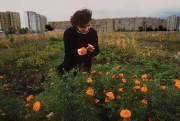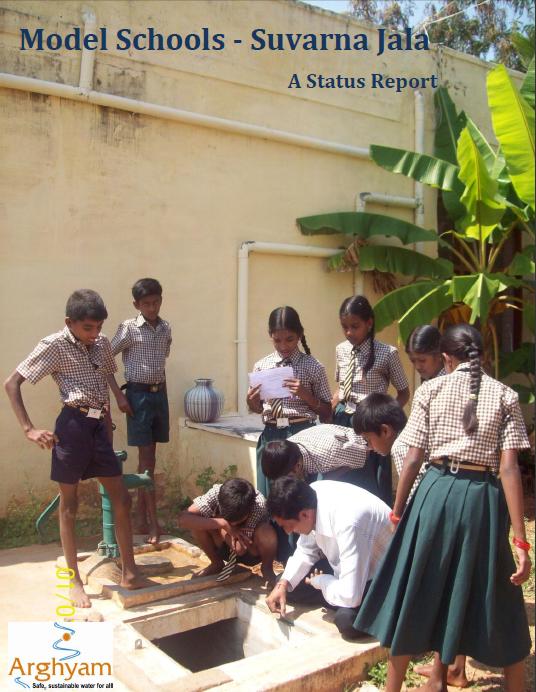/topics/health
Health
The wealth of waste: The economics of wastewater use in agriculture - A report by FAO
Posted on 17 Dec, 2010 07:36 PM This report by the Food and Agriculture Organisation (FAO) deals with the economics of wastewater use in agriculture. It presents an economic framework for the assessment of the use of reclaimed water in agriculture, as part of a comprehensive planning process in water resource allocation strategies to provide for a more economically efficient and sustainable water utilization.
This report by the Food and Agriculture Organisation (FAO) deals with the economics of wastewater use in agriculture. It presents an economic framework for the assessment of the use of reclaimed water in agriculture, as part of a comprehensive planning process in water resource allocation strategies to provide for a more economically efficient and sustainable water utilization.
Seasonal changes in Indian aerosols: Updates from Earth Observatory
Posted on 25 Nov, 2010 12:49 PMIn recent years, scientists have detected very high levels of aerosol pollution in the air over India. Some of it is the result of industrial and agricultural activity, and some of it is nature at work.
News roundup (16-22 November 2010)
Posted on 24 Nov, 2010 10:07 PMSanitation/Wastewater
- India tops the list of nations lacking toilets
- India hunts for a Rural Toilet Design, 1000 Euros up for grabs
- 82% of rural India deprived of three basic necessities of life — tapped drinking water, electricity connection and sanitation
- There are 700 million cell phone connections in India, but only half this number of Indians have access to private toilets, says a UN study
News roundup (8-15 November 2010) :"India proposes a new emission check system" and News round-up on the floods
Posted on 17 Nov, 2010 06:08 PMClimate Change
Environment
Model Schools: Suvarna Jala - A status report by Arghyam (2009)
Posted on 15 Nov, 2010 10:46 PM This is a status report of Arghyam's sponsored efforts to develop and showcase community managed water and sanitation systems in 17 schools of 7 districts of Karnataka.
This is a status report of Arghyam's sponsored efforts to develop and showcase community managed water and sanitation systems in 17 schools of 7 districts of Karnataka.
The Government of Karnataka through its Suvarna Jala Yojana aims at providing drinking water in 23,683 rural government schools. This was funded to the tune of Rs 7735 lakh. Arghyam conducted a survey of this scheme in 2007 in 7 districts to ascertain the status of the scheme. The survey found out that out of the 1269 rainwater harvesting structures completed by November 2006 only 140 structures were functional.
Climate change and its impact on groundwater – A presentation by ACWADAM
Posted on 13 Nov, 2010 09:38 PMThis presentation by ACWADAM deals with climate change and its impacts on long-term replenishment of groundwater. The presentation provides an overview of the current insights and knowledge on climate change impacts and gives an overview of best options for developing and safeguarding groundwater resources.
Paving the way for the control of Cholera and Typhoid fever in Kolkata - A research project report of the NICED-IVI collaboration
Posted on 13 Nov, 2010 08:43 AMThis collaborative research work between National Institute of Cholera and Enteric Diseases (NICED), Kolkata and International Vaccine Institute (IVI), Seoul under the Diseases of the Most Impoverished (DOMI) Program, supported by the Bill and Melinda Gates Foundation aims to give useful information for the prevention and control of typhoid fever and cholera. The aim is to accelerate the introduction of new generation vaccines against cholera, shigellosis, and typhoid fever, through research and capacity-building.
The burden of cholera in the slums of Kolkata - A community based study by NICED
Posted on 12 Nov, 2010 12:29 AMThis paper by National Institute of Cholera and Enteric Diseases (NICED) is based on a prospective, community based study in an impoverished urban site in Kolkata in order to measure the burden of cholera, describe its epidemiology, and search for potential risk factors that could be addressed by public health strategies. The study population was enumerated at the beginning and end of the study period. Surveillance through five field outposts and two referral hospitals for acute, watery, non-bloody diarrhoea was conducted from May 2003 to April 2004.
Status of water supply, sanitation and solid waste management in urban areas – A research study by CPHEEO (2005)
Posted on 11 Nov, 2010 10:16 PMThis study by the Central Public Health and Environmental Engineering Organisation (CPHEEO) assesses the status of water supply, sanitation and solid waste management in selected 300 cities and towns of India including all metropolitan cities and selected Class I and Class II urban centres. It estimates the requirement of funds for full coverage of population by these services in the urban areas of the country from 1999 to 2022 (at five yearly intervals). Overall, the study confirms the normal notion that the metropolitan cities are better provided for than the other size class of urban centres.
Effective interventional approach to control anaemia in pregnant women through avoidance of flouride - Current Science paper
Posted on 11 Nov, 2010 07:33 PMThis paper from Current Science deals with anaemia in pregnancy and low birth weight babies, which can lead to maternal and infant mortality, and continues to plague India and several other countries despite nutritional counselling and maternal iron and folic acid supplementation. It reports the results of fluoride avoidance as an approach to address the issue. The methodology of the research entailed the following -





